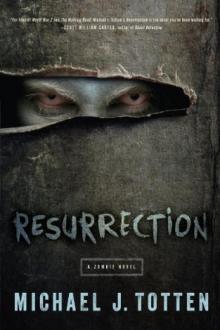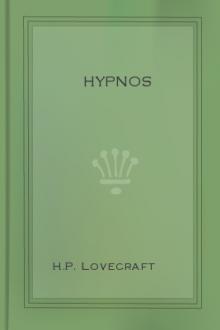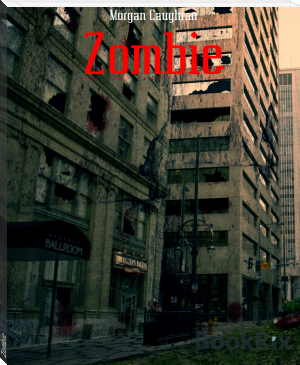Resurrection: A Zombie Novel, - [ereader manga .TXT] 📗

- Author: -
- Performer: -
Book online «Resurrection: A Zombie Novel, - [ereader manga .TXT] 📗». Author -
The three of them stood and joined him and Hughes on the deck.
“Shh,” Hughes said.
Everybody was silent for a couple of moments. The noise wasn’t loud, but it was there.
“I don’t hear anything,” Annie whispered.
“I do,” Parker said.
“I do too,” Frank said.
How could Annie not hear it?
“Oh,” Annie said. “You mean that faraway sound. I thought you meant the boat was making some noises.”
“Shh,” Hughes said. “Listen and tell me what you think that is.”
Everyone shushed and kept quiet for a few minutes. The sound grew faintly louder as the boat sailed north. It sounded a little like a distant stadium roar.
“What is that?” Annie said. She sounded afraid.
“Good God,” Parker said. “Tacoma’s up ahead, right?”
“It is,” Kyle said.
“How many people live in Tacoma?” Parker said. “Or used to live in Tacoma?”
“Well,” Kyle said. “It’s part of Seattle metro, which has, or had, more than 3 million people.”
“So there must be thousands and thousands of those things running around,” Parker said. “That’s what we’re hearing. Thousands and thousands of them screaming at once.”

Kyle desperately wanted them to be wrong, but they weren’t, and it was obvious as they got nearer to the city. First they saw the dark shapes of houses on the hills rising above the shoreline, and then, after rounding Point Defiance Park, he could clearly see the dark outlines of cranes at the port and Tacoma’s blacked-out skyscrapers.
The noise was intense now. It sounded like the screaming horde outside their grocery store times 100 or even 1,000. And it no longer sounded like a distant stadium roar. It was as if Kyle were standing inside the stadium.
Somebody ought to drop a nuclear bomb on the city.
“What on earth are they doing?” Annie said.
“Hunting,” Hughes said. “Starving. Fighting each other. Eating each other. Who knows? But I’m sure as hell glad we’re not in the middle of that. I’d rather stick my head in a garbage disposal.”
Kyle had been a little concerned that his companions might want to stop at one of the nearer islands rather than continue to the San Juans. He didn’t want to because the islands of southern Puget Sound were too close to Seattle and Tacoma and far more likely to be infected or, in the best-case scenario, jam-packed with starving and violent survivors like Lane. The San Juans were farther away from the population centers and much harder to get to. None were connected to the mainland by bridges. They’d be safer there for sure.
That sound from a darkened Tacoma—the sound of thousands of screaming diseased people going berserk—ensured that no one would want to stop anytime soon.
Kyle noticed a glow of light in the sky beneath some low clouds on the northern horizon. Could it be? No.
“Look,” he said. “Seattle. It looks like it’s lit.”
“Well, I’ll be goddamned,” Frank said. “They got the power back on?”
They couldn’t see Seattle yet. Vashon Island stood in the way. They’d have to clear that before they could see the big city. The glow on the clouds above the city, though, was clearly visible above the dark hills in the distance.
But the power wasn’t on. The glow was flickering. And the color was off. It wasn’t yellow or white. It was orange.
“That’s not city light we’re looking at,” Hughes said.
And that wasn’t a cloud over the city. It was a column of smoke the size of a mountain.

Once they cleared the eastern tip of Vashon Island, it was obvious: an apocalyptic firestorm engulfed all of Seattle. Even the forests of Discovery Park were ablaze.
Hughes collapsed onto the deck. Just went straight down on his ass as though his legs turned to jelly. “God,” he said.
“That isn’t God’s work, my friend,” Frank said.
Hughes gasped for air. He was breathing fast and hard, but he couldn’t get enough oxygen.
West Seattle should have been right in front of the boat, but it was gone, finished, razed by flames to the last blade of grass as if scoured by a tsunami of lava.
That’s where his house used to be. Where his wife and his boy were buried. He’d never find the place where the house used to stand. Never find his wife. Never find his child.
Something broke inside him, like a physical tear in his chest cavity.
He thought about pitching himself over the side and into the water, but instead he just pitched himself forward and heaved a shuddering sob. Annie—bless her soul—sat beside him, put her hands on his shoulders, and rested her head against his.

Kyle reacted quite differently. The inferno terrified the animal part of his brain. He could feel the heat as if he’d just opened the oven. But a part of himself that he had no idea existed found the scorching of Seattle exhilarating.
He’d grown weary of cities before the plague started. His work as a computer programmer in Portland had suited him for a while, but hunching in front of a screen for long hours in a cubicle farm wore him down. That was not what humans were designed—either by evolution or God—to spend their lives doing.
Hiking in the wilderness had been his antidote. Cities are by definition artificial, and while they’re wonderfully comfortable and even luxurious for those who have money, the landscape of evergreens, ferns, mosses, rocks, streams, soil, wildflowers, volcanoes, and glacial moraines is the real world. Look at a satellite photo of earth taken at night. Most of it’s dark. The western half of America is only a fraction as lit up as the East because most of it’s empty. The flecks of light are just fake little pockets.
Humans evolved to hunt and forage for food. We’ve done little else for nearly the entire time we’ve existed. We aren’t designed to do anything else except reproduce. Civilization is not our default condition. Kyle felt keenly aware of this whenever he went off into the woods, as though the deep genetic coding in his body and mind were being rebooted. In a way, the infected ones were living a more natural life than Kyle ever did with his stock options and postmodern loft condo in Portland.
Sometimes while hiking on weekends, he idly thought about giving up his cushy urban life to live off the land. It was a fantasy, of course. He’d never actually do it. But he did see the appeal. He had read Jon Krakauer’s Into the Wild four times.
And now that’s exactly how he’d spend the rest of his life whether he liked it or not.
But he looked forward to it. The last thing he wanted was to die in some hideously shattered suburb of Olympia, but now he wouldn’t have to. He’d spend the rest of his days in what he always thought was the real world.
Nature would slowly but inexorably overtake every city, suburb, and town ever built until nothing but forest, desert, prairie, and jungle remained. That awful grocery store on that awful street in that awful town off the interstate would soon enough be swamped by grasses and trees and animals and possibly even new bodies of water. If Kyle lived long enough and the infected died off on the mainland, he could watch that process begin and even advance. Seattle was simply being reclaimed a little bit faster.
“How far do you think that fire will spread?” Parker asked no one in particular.
“I don’t see why it would stop,” Frank said, “until the rains come. What do you think started it?”
“Could be anything,” Parker said. “Lightning strike. Gas leak. Boiler explosion. Whatever it was, there’s nobody left to put it out.”
It had never occurred to Kyle before that fire departments didn’t only save people and houses. They saved whole cities from total destruction. Eventually, most cities on earth might burn to the ground. What a revelation. A glorious revelation.
With the old world in ashes, he and the other survivors could give birth to a new one.





Comments (0)